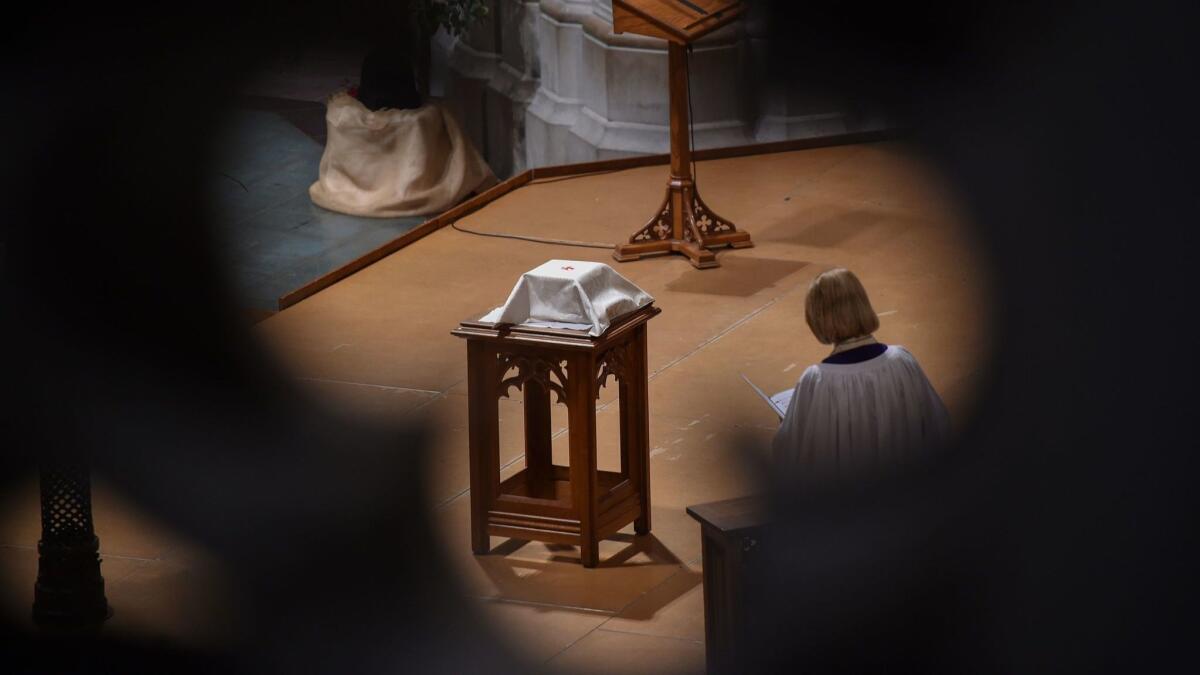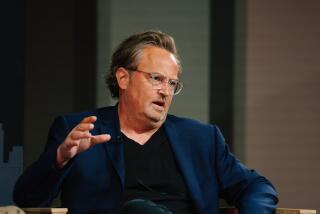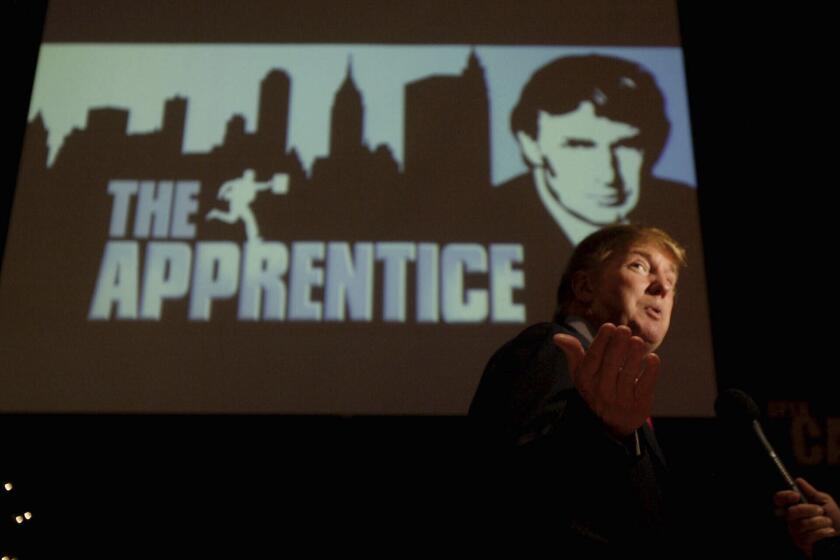Opinion: 20 years after his murder, Matthew Shepard is still under attack

Last week, Matthew Shepard’s parents, Judy and Dennis, sat for a television interview. Their son, of course, had been beaten, pistol-whipped, tied to a fence post, and left to die near Laramie, Wyo., in 1998. Now, 20 years later, his ashes were being interred at the Washington National Cathedral.
In the television interview, the news anchor proceeded, in the tradition of many before her, to gently yet obviously try to make Matthew Shepard’s parents cry on camera.
For the record:
4:40 p.m. Nov. 13, 2018An earlier version of this post mischaracterized some of the findings and sources of Stephen Jimenez’s book on Matthew Shepard. The spelling of Shepard’s last name was also corrected in multiple instances.
The exchange went something like this: She asked them if they were moved. They were. She listed others who’d been buried there — Woodrow Wilson and Helen Keller, for instance. She asked them how they felt. They were honored. She was not getting what she wanted. They were not crying. The church, she told them, held Matthew Shepard in that level of esteem. He changed the world, she said. That must make them feel some kind of way. “To us, he was just Matthew,” his mother said. His mother was sad, had likely been sad for 20 years, but did not cave.
It was a true moment, a moment that doesn’t always survive our storytelling, our insistence on archetypes and transcendent meaning. Those who die violent deaths do not intend to be heroes. Matthew Shepard was at a bar; he was offered a ride home by two men who seemed good but were not; and he accepted it. This has also happened to me — quite likely, to many of us — and I survived, but if I had not, it would not have made me a saint. It would have made me a person, a young person, trusting despite everything, whose trust was abused absolutely. Matthew Shepard was 21 years old when he died.
We don’t want ordinary people like Matthew Shepard lionized in death. We want a world of Matthews living.
Matthew Shepard was gay, and that’s why the two men who killed him did it. He was not a movement leader. His homosexuality was a personal fact. There are details that don’t make it into the storytelling anymore, and for that I am glad, but to offer a broad outline of the cruelty he endured—Matthew Shepard was only 5-foot-2 and 105 pounds; his injuries were so severe that the doctors could not operate; and it took him six days to die.
It’s hard to refer to him as just “Matthew,” as his mother did, because it’s too familiar, or as “Shepard,” as newspaper convention would have it, because we grew up hearing him called Matthew Shepard, full name. His full name was an international news story. His first name is a small story. Matthew was, by all accounts, a kind person, a gentle person. He didn’t make decisions that changed the course of history as the others interred at the cathedral did. Instead, Matthew Shepard is known for what happened to him — that he was murdered, brutally, for being gay.
For years, there have been active attempts to erase that story. For example, Stephen Jimenez, the author of “The Book of Matt,” has argued that Matthew Shepard was killed over methamphetamine. The Laramie police commander and the lead sheriff’s investigator on the case have vehemently disputed this claim. Last week, the coroner who conducted his autopsy said the victim had no meth in his system and hand-shaped bruising around his genitals; “I think everybody knows this was a hate crime,” she told the Casper Star-Tribune. “I think people are lying to themselves if they believe this was not a hate crime.” Yet Jimenez’s book has received considerable attention.
Enter the Fray: First takes on the news of the minute »
In the 20 years since Matthew Shepard was murdered, gay marriage became legal. Gay and trans people were permitted to serve openly in the military. When he was murdered, 45% of Americans believed homosexuality should be accepted by society; that number is now 70%. This is extraordinary progress.
It is also fragile progress. Matthew Shepard’s ashes were not interred at the Washington National Cathedral in honor of his impact, as the news anchor had implied. His parents asked for his ashes to be kept there because they believed they’d be desecrated if left unguarded. The Rev. Gene Robinson, the Episcopal Church’s first openly gay bishop, gave the homily. “You are safe now,” he said, and it seemed true.
A favored talking point of the far right is that targeted minorities and those who would see them protected are obsessed with safe spaces. They ignore the fact that safe spaces are necessary only to the extent that some among us insist upon making public space unsafe.
We don’t want ordinary people like Matthew Shepard lionized in death. We want a world of Matthews living.
Melissa Batchelor Warnke is a contributing writer to Opinion. Follow her @velvetmelvis on Twitter.
Follow the Opinion section on Twitter @latimesopinion and Facebook
More to Read
A cure for the common opinion
Get thought-provoking perspectives with our weekly newsletter.
You may occasionally receive promotional content from the Los Angeles Times.











